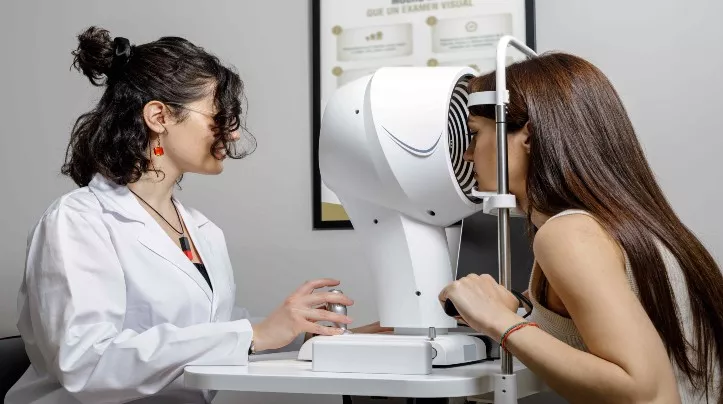
People living with diabetes in England who have a lower risk of developing diabetic retinopathy will now be invited to receive NHS diabetic eye screenings every two years, instead of every year.
This change will be implemented gradually over the next two years. People living with diabetes will now start to be informed of changes to their screenings, if applicable, following their latest eye screening results.
People living with diabetes in England aged 12 years and over who have had two consecutive eye screening tests showing no signs of diabetic retinopathy, will start to be offered screening every two years.
Anyone at higher risk will continue to receive more regular eye screening
Why has this change been made?
This rollout is based on a recommendation from the UK National Screening Committee, the independent scientific committee that advises the NHS, and UK government.
Research shows that it is safe for people with no evidence of diabetic retinopathy on two consecutive screening occasions to be screened every two years.
The change has also been made to reduce the number of appointments people with diabetes at lower risk need to attend. The NHS says reducing these appointments will help to improve the service it offers.
This change has already been implemented in Wales, Scotland and Northern Ireland.
Why it is important to attend diabetic eye screenings
Diabetic retinopathy is a complication that can develop where consistently high blood sugar levels and high blood pressure can cause damage to the blood vessels in the eye.
Attending diabetic eye screenings can help detect the condition early before people notice any changes to their vision.
Esther Walden, Deputy Head of Care at Diabetes UK, said:
“Diabetes UK supports the changes being made to the eye screening programme for people living with diabetes in England, bringing it in line with the screening intervals for the other UK nations.
“Eye screening can detect changes in the eye before any changes to vision are noticeable, and early treatment can help prevent sight loss, so we recommend everyone attends their eye screening appointment when invited.”
